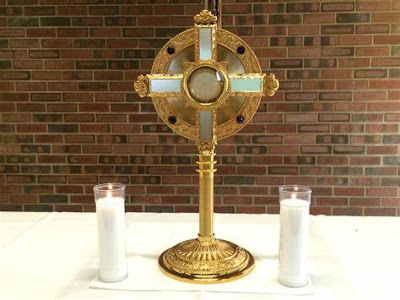I receive 29 February as a time-gift. It is the gift of an extra day, not of Lent because even during Leap Year, Lent remains the same length, and not of life because my life is however long it is going to be. It merely adds a day to this year: AD2024. The last Leap Year was in 2020, the time of pandemic panic. It's hard to forget all the lamentations and jokes about, of all years, 2020 being longer.
Time is a strange thing. Our ways of marking time, while not exactly arbitrary, have nothing of the absolute about them. According to our solar calendar, a year is the amount of time it takes the Earth to do a complete rotation around the sun.
At its most basic, time is a function of change. If you think about a mechanical clock, one with a second hand, a second is a measurement of how long it takes for the hand to move from one tick mark to the next. This also shows us that space and time, while distinct in a way, are inextricably bound together.
Isn't Lent also about change?
One of the few complex philosophical ideas Pope Francis evokes quite regularly is the insistence that "time is greater than space." His reason for doing this is to bring forward the idea that genuine human progress (i.e., change/conversion), our progress towards becoming ever authentically human, is a function of time. Rather than a quantum leap, true conversion is a progression, something that happens over time and through experience. As the Pastoral Constitution on the Church in the Modern World, Gaudium et spes ("Joy and hope"), beautifully articulates, Jesus Christ is the "perfect" human being (sec. 22).
This brings us back to Lent as a "time-gift." In reality, every day is a time-gift, is it not? Any day and every day can be New Year's Day, a new beginning. Just as most every Friday (solemnities excepted) is a "little" Good Friday and every Sunday, including Sundays of Lent (which don't count against the 40 days), is a "little" Easter, every going to sleep is a "little" death and every awakening is a "little" resurrection. We must reconnect liturgy to life!
I used to find C.S. Lewis' insistence that "Relying on God has to begin all over again every day as if nothing had yet been done" very discouraging (from Letters to Malcom, Chiefly on Prayer). Then I realized how ridiculous it is, especially given life's dynamism, to think- "Why can't I just put my trust in God and be done with it?" In other words, "Why can't I just stand here and not move?" Time is greater than space.
In his first encyclical, Lumen Fidei, a substantial draft of which he inherited from Pope Benedict, we find several Bergoglian interjections. One of those can be found at the end of the letter's fifty-seventh section. This section is a beautiful meditation on the theological virtues of faith, hope, and love. Its main focus, however, is hope. It deals with how hope integrates faith and love (i.e., caritas, charity).
Let us refuse to be robbed of hope, or to allow our hope to be dimmed by facile answers and solutions which block our progress, "fragmenting" time and changing it into space. Time is always much greater than space. Space hardens processes, whereas time propels towards the future and encourages us to go forward in hope











